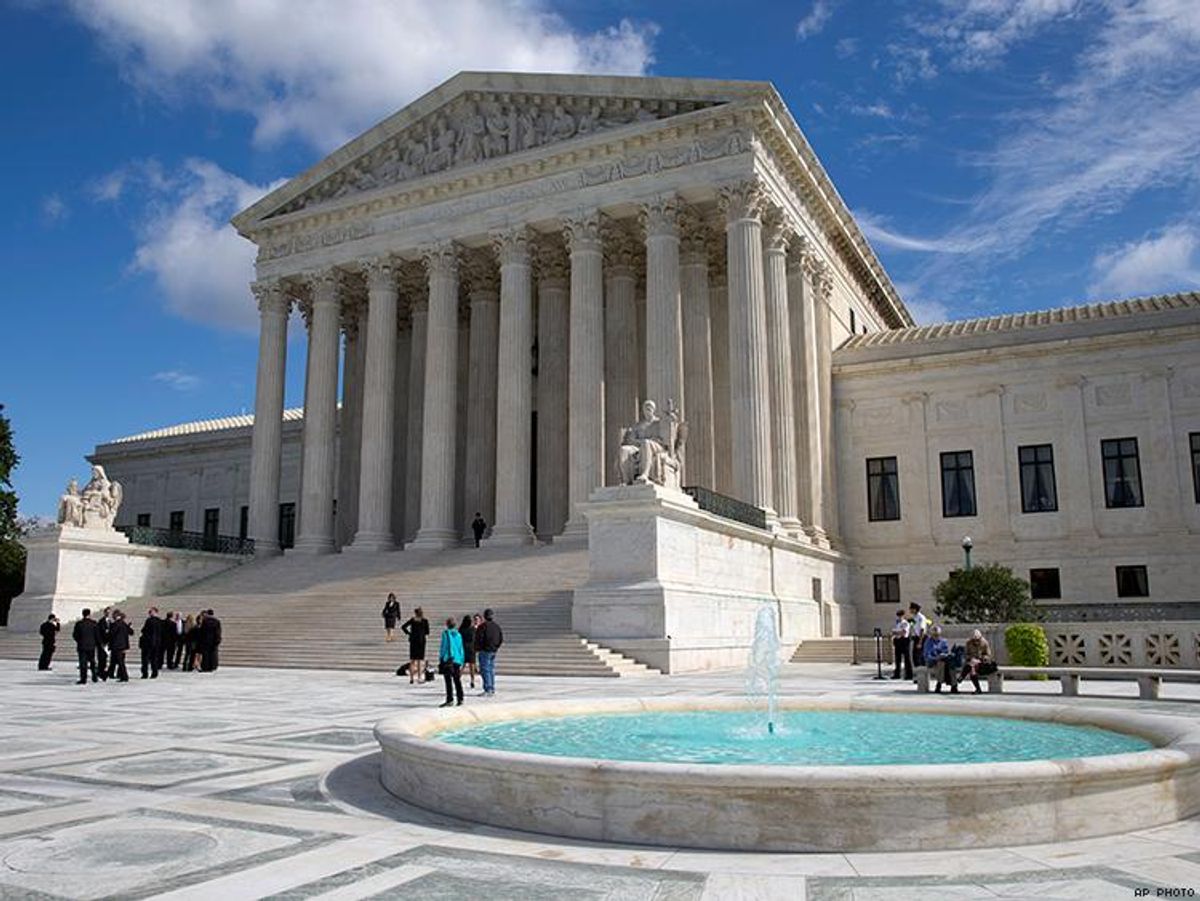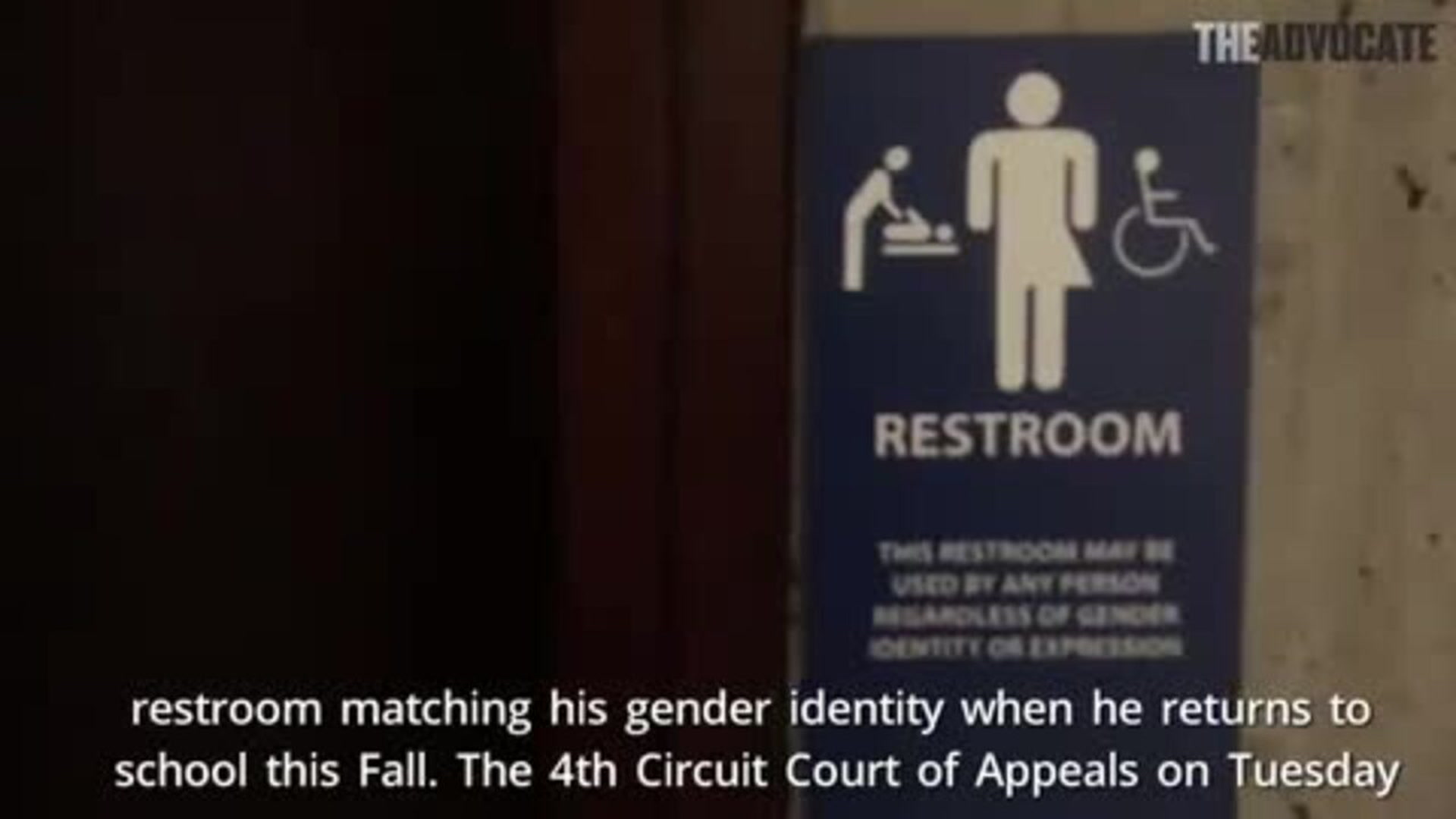A school board in Virginia will have to let a transgender student use the boy's bathroom at school -- even while it appeals that decision to the U.S. Supreme Court.
The U.S. Court of Appeals for the Fourth Circuit on Tuesday denied the Glouchester County School Board's request to put on hold an April ruling in favor of 16-year-old Gavin Grimm, reports the Associated Press.
The appeals court's rejection of the school board's request for a stay on April's preliminary injunction means that Grimm should be able to use the boy's bathroom along with his peers when he starts his junior year of high school this fall.
Meanwhile, the school board's appeal is still pending at the U.S. Supreme Court, which could settle the question of trans student access once and for all. But even if the high court declines to hear the case, the conclusion of Grimm's legal battle will have sweeping implications.
In May, the U.S. District Court for the Fourth Circuit declined to reconsider its own ruling in Grimm's favor. Although Grimm had been using the facilities that matched his gender identity for some time without incident (with the support of school faculty and classmates), the Gloucester County School Board abruptly barred him from the boy's bathroom and locker room, segregating him to a separate, unisex bathroom. A federal district judge originally ruled in favor of the school district's policy, which claims to regulate bathroom access according to "biological sex," but that decision was overturned on appeal.
BuzzFeed News legal editor Chris Geidner reported that the Gloucester County School Board filed notice June 9 of its intention to seek a review by the nation's high court. He also noted that, due to the court's scheduled summer recess, the earliest the case could be heard would be late this year or early next year.
The case has already reached landmark status -- which is sure to be solidified, no matter how the court responds to this latest petition. If the court declines to grant the case a writ of certiorari, the lower court's ruling will be cited by lawyers and judges as the defining precedent for the entire Fourth Circuit, which includes Virginia, West Virginia, North Carolina, South Carolina, and Maryland.
When the Fourth Circuit found in Grimm's favor last April, it marked the first time a federal appeals court had affirmed that Title IX of the Education Amendments of 1972, which prohibits discrimination on the basis of sex, extends to discrimination on the basis of gender identity, as well. Throughout the course of litigation, both the Department of Justice and Department of Education clarified their legal interpretations of the trans-inclusive nature of existing civil rights law, and the DOJ directly filed a "friend of the court" brief on Grimm's behalf.
If the Supreme Court decides to hear the case, then any decision will set a nationwide precedent -- and could settle the question of whether Title IX does indeed protect trans students, as the Obama administration has argued.
If the court were to hear the case with its current composition of just eight justices, any number of outcomes could be reached. In the event of a 4-4 tie, the lower court's ruling would stand -- creating essentially the same result as if the court denies review outright. Of course, a majority decision -- either in favor of or against the civil rights of Grimm and, by extension, all transgender students -- would have a ripple effect nationwide. Such a decision would set the tone for Title IX battles for decades.
Regardless of which path the Supreme Court takes, the fact that this case is headed to the highest legal arena in the country is history-making in itself. The case marks the first time the Supreme Court has been asked to contend directly with the rights and privileges afforded to transgender students, and may be the first time the high court has ever considered a case explicitly dealing with transgender rights and an out transgender plaintiff.




















































































